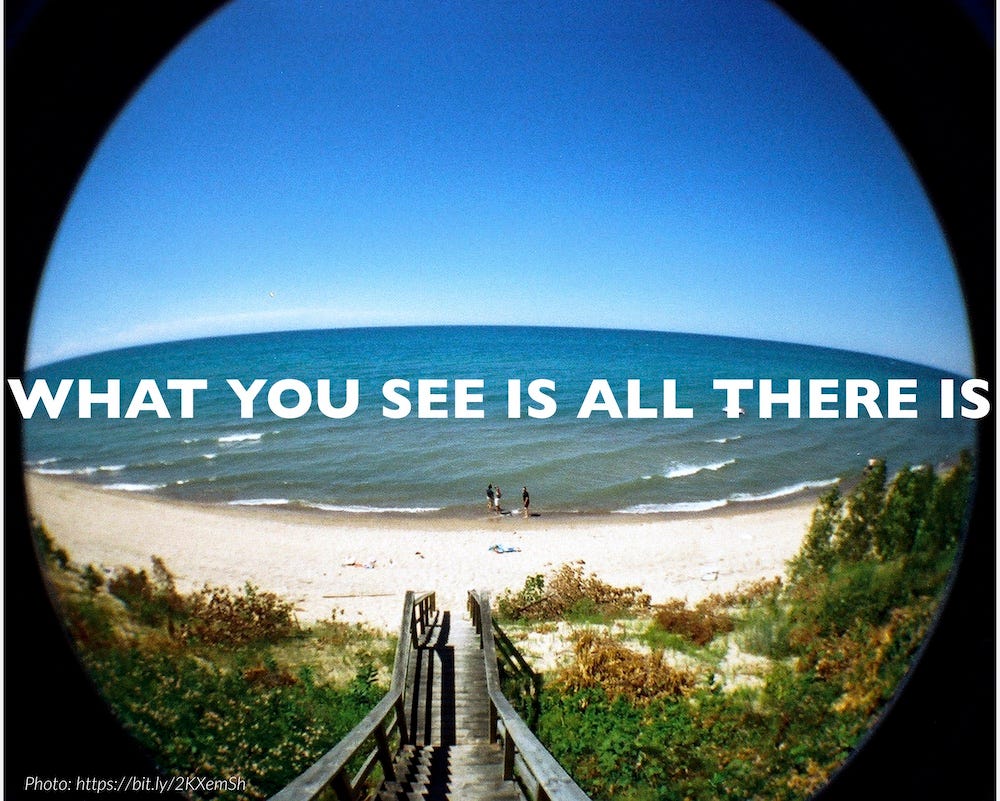Why "Irrational" Choices Make Biological Sense: Putting the Human Back in Decision-Making
Behavioral Economists' Obsession with Weaponizing Rationality
The latest brouhaha in the never-ending saga of Analyzing Human Behavior is Not Compatible with the Scientific Method is that of Dan Ariely. The behavioral economist and bestselling author of books like Predictably Irrational: The Hidden Forces That Shape Our Decisions has been accused of fabricating data on a paper about dishonesty. I mean, really.
Really.
Seriously.
There’s a great overview of the whole thing on my new favorite Substack, Experimental History. Of Ariely, he writes: "he’s famous for his work on irrationality, which you could charitably summarize as “humans deviate from the rules of rationality in predictable ways,” or you could uncharitably summarize as “humans r pretty dumb lol.”
For the fabricated study in question, Ariely & coauthor Francesca Gino tweaked car 13,000 insurance forms that asked policyholders to report their mileage. Allegedly, when people signed an honesty pledge at the beginning of the form, they were more truthful than when they signed that statement at the end of the form.
It made a good story and came with a good name, so it got published; alas, the whole thing was a sham and gobs of the data were false.
So false, apparently, that they didn’t even bother to use the same font for the new faux data, the numbers necessary to further their pre-existing narrative. Let’s now start to think of most peer-reviewed scientific journals as “Instagram Feeds of Academics Sponsored by Universities,” only showing us the stuff that users have decided should be shared, all of it made pretty with just enough filters to sit at the intersection of reality and what someone wants reality to be.
But I digress.
Let’s discuss rationality, Ariely’s main obsession. Remember, of course, that Ariely makes up a lot of stuff, which—for a scientist—might be considered irrational.
Rationality is often defined as acting in one’s best interests. So if Ariely’s main concern was to be honest, then his behavior wasn’t rational. If he was more interested in getting published at any cost, to be an academic superstar despite fraud, etc., etc., then his behavior makes perfect sense. It’s rational.
So what, then, are we to make of the way that most behavioral economists judge rationality?
Repeat after me: the human brain is not a computer. Thinking is costly. It takes energy. We have a biological imperative to complete our tasks efficiently. Being “irrational” and falling victim to cognitive biases are the inevitable result of having a biological control center that emphasizes information in its immediate environment.
It shouldn’t be a shocker as to why: throughout 99% of evolution, this was it. Whatever was right in front of you was your world, the only information worth attending to. You weren’t comparing measurements or pricing wines or doing little optical illusions, you were simply trying your best not to die.
Getting along with people matters more than solving stupid brain teasers
If your social group hated you, you’d get kicked out and die. Other people’s opinions are what turn subjectivity into objectivity. Is something a fact really just depends on how many other people say that something is a fact. It was once a fact that the earth was the center of the universe. It was once a fact that having to wear my snow boots all day because I forgot my sneakers was the absolute worst thing to possibly happen to me. It was once a fact that I was the youngest person on earth. (And at one point, you were, too!) But the wisdom of time tells us not to seek scientific validity from the church, life lessons from 7 year-olds, and to accept the passage of time. And yet—at one time, these things were legit. What you see is all there is.
Humans differ by cultural and social norms: what everyone else around us is doing. We’re more adept at picking up social cues and following orders, things that allow for the speedy transmission of knowledge and group living. Compared to other kinds of knowledge, people show a robust bias in their ability to remember social norms, specifically norms about other people.1 Knowing how we’re supposed to act is in our bones because it helps keep us all on the same page. Group living: it's our survival mechanism. Like most standout traits, it's both our biggest asset and downfall.
Here’s a list of things I did that were irrational according to my former coworker:
Go to the gym
Go to the grocery store & cook instead of ordering takeout
Stop working at 10pm, when my brain was fried
Sleep past 8am on the weekends
Go on dates
The key thread here is that, in some people’s minds, it’s irrational to do “things that are not working.” This might make sense if you had a deadline in a few hours, or if you had live-in help. But “productivity” requires doing all the things that keep you sane, healthy, fed.
Rationality as social control
The concept of rationality has a long, complex history, serving as a benchmark for what is considered “normal” or “acceptable” behavior in various social contexts. Like the term hysterical, it’s been employed as a form of social control, delineating who is considered capable of making reasoned decisions and who is not. Psychiatry arose from a pseudo-science designed for social control.
Irrationality may be the insanity of our era, a way of exerting control by shaming anyone who dares to have a brain that does not mimic a computer set to maximize profit. Just as the dominant discourse on work is set by lucky workaholics, the dominant discourse on rationality is set by narcissistic capitalists: economists who insist that they know precisely how humans should behave, what people should value at any given time.
Want to drive across town to save a few bucks? Irrational, the behavioral economists say. Want to get a soda instead of putting that money into your savings account, where it will be worth $2.50 when you’re 80 and we’re all living in underground bunkers? Irrational.
Rationality: What It Is, Why It Seems Scarce, and Why It Matters, by Stephen Pinker, like most books on the topic, fails to discuss the fact that, quite simply, people value different things. We are not all tenured white male professors who can wait until next week to get $15; sometimes we need $10 RIGHT NOW.
Our brains are not machines. Sometimes it’s worth it for us to drive across town to save a few dollars because we get to leave the house. These are not faults in our mental makeup, they are merely unquantified variables. Things that aren’t accounted for.
If you only value money, you’re going to wind up lonely
Remember: other people are acting rationally from their own perspective. In runaway capitalism, if men have been socialized to equate their self-worth with their income, then it seems to make sense that they’d want to spend every minute obsessed with money. Good for you.
But it’s not making you happy, if it’s killing the planet, if it’s not treating you like a human, then maybe it’s not the absolute best system of thinking. It’s just another example of how entrenched capitalism is into our way of thinking, of how we pathologize others, of how we make fun of other people’s choices, of how we demonize in lieu of empathizing.
Maybe it’s not really rational.
Thanks for reading! If you liked this, forward to someone who’d like it. You can also buy me a coffee, or subscribe to my newsletter. I’m also on Instagram and LinkedIn. This post may contain affiliate links.
Leave a comment; if you enjoyed it, please spread the word! ****Or just click the heart button, that’s always very appreciated! Don’t be shy! I value feedback (suggestions, critiques, positive reinforcement, constructive insults, etc.) hello@kstarr.com
e.g., Hannes Rakoczy, Felix Warneken, and Michael Tomasello. “The Sources of Normativity: Young Children’s Awareness of The Normative Structure of Games.” Developmental Psychology 44, no. 3 (2008): 875-881. Joshua W. Buckholtz. “Social Norms, Self-Control, and the Value of Antisocial Behavior.” Current Opinion in Behavioral Sciences 3 (2015): 122–129. Rick O’Gorman, David Sloan Wilson, and Ralph R. Miller. “An Evolved Cognitive Bias for Social Norms.” Evolution and Human Behavior 29 (2008): 71–78. Alex Mesoudi, Andrew Whiten, and Robin Dunbar. “A Bias for Social Information in Human Cultural Transmission.” British Journal of Psychology 97 (2006): 405–423. Robin Dunbar, N.D.C. Duncan, and A. Marriott. “Human Conversational Behavior.” Human Nature 8 (1997): 231–246.



